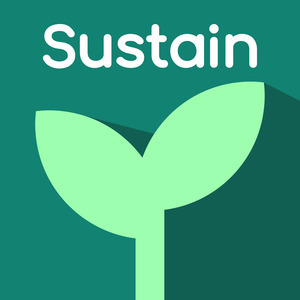Episode 83
Dominic Nguyen on Chromatic, Storybook.js, and building self-sustaining OSS projects
July 2nd, 2021
37 mins 3 secs
About this Episode
Guest
Dominic Nguyen
Panelists
Eric Berry | Justin Dorfman | Richard Littauer
Show Notes
Hello and welcome to Sustain! The podcast where we talk about sustaining open source for the long haul. We are very excited about our guest today, Dominic Nguyen, founder of Chromatic, the company behind Storybook.js. Storybook.js is an open source tool for building UI components and pages in isolation. On this episode, Dominic fills us in on Chromatic, how Storybook evolved, the story behind Meteor, which is the first full-stack JavaScript framework, and who their venture backers are. We also learn the difference between Declarative and Imperative UI, and Dominic tells us what it means for him to be an open source project. Download this episode now to find out much more!
[00:01:21] Dominic tells us about Storybook and how it evolved.
[00:06:26] We learn the difference between Declarative and Imperative UI.
[00:08:22] Find out what other projects have come out of Meteor.
[00:09:07] Richard wonders what the financial situation is for Storybook, how much money is needed, and where does it go.
[00:11:00] Dominic announces Chromatic is hiring engineers to do open source development, and he tells us who his seed funders are that believe in his mission.
[00:14:24] Dominic talks about open source companies launching these open source business models.
[00:16:04] Eric wonders if there’s a direction with Storybook to work with or integrate with non-JavaScript based frameworks.
[00:18:26] Richard wonders how Dominic is avoiding becoming a “kitchen sink” and making sure that he doesn’t just fill all the needs for everyone and then do it badly. Dominic explains why they exist as the guiding light.
[00:21:43] Richard asks Dominic what it means for him to be an open source project and how does he mentally manage the divide between the Storybook community as a whole needing to be sustained.
[00:25:04] Eric asks Richard why would the funds that are generated to develop and maintain this project, why should they be distributed outside of the team that’s the primary maintainers of it. Eric and Justin chime in and share their perspectives on this topic as well.
[00:32:39] Find out where you follow Dominic online.
Quotes
[00:02:57] “Meteor was, for the audience who might not be familiar or who is just jumping into JavaScript now, was one of the first, or if not the first full-stack JavaScript framework.”
[00:05:38] “If you look at the kind of long history of what components and why components exist, you can think about them as standardized parts.”
[00:09:22] “The way we do it at Meteor is two ways: One, we have this idea of we’re a community led open source project. We have an open collective that donates, like folks in the community donate money and then it’s used effectively for marketing, marketing purposes, swag, doing stuff like CI, bills, like kind of incidentals.”
[00:09:49] “Because when you think about it, it hasn’t been enough to really pay someone a salary without asking for donations all the time and I think that’s what’s happening in Babel right now.”
[00:10:10] “So, what we do on the Chromatic is the company behind Meteor, we have maintainers, official maintainers whose full-time job is to push that project forward, build the features that people want and maintain that kind of core API, and that is in partnership with our community.”
[00:14:37] “If you look at the long answer in the context of other open source companies that are coming out right now and are launching, it seems like this is the model that everyone has landed on that separates you from these older style like open source, I would say classic open source business models.”
[00:15:02] “It seems like the modern kind of like open source business models, build an open source project, sell some type of service that compliments it.”
[00:17:57] “So for instance, isomorphic was like the hot word five years ago.”
[00:22:28] “We put money back into the open source project and in doing so the development experience is better for everyone and it’s that cycle that we’re trying to maintain and continue.”
[00:27:34] “Yeah, for me, the issue is like people who contribute to it, they’re self-serving, it’s a self-serving action. They are contributing to it for their own benefit.”
[00:28:11] “And when that is the case, I agree with you a hundred percent. When that’s not the case, when it’s a tool that’s being used by anybody, to me honestly, that is the beauty of open source.”
[00:29:52] “So, the hard part about open source is maintaining it for a really long time.”
[00:30:28] “Just staying afloat is like a full-time job.”
[00:30:33] “And what we hope to offer the community from Chromatic, as like the maintainers, is a stable release cadence that keeps up with the rest of the ecosystem and includes some new, helpful, handy features.”
Spotlight
- [00:33:26] Eric’s spotlight is s tutorial, “Dockerize your Rails app” by Nate Hopkins.
- [00:34:25] Justin’s spotlight is Wormhole by Feross.
- [00:34:49] Richard’s spotlight is Brian T. Ford.
- [00:35:19] Dominic’s spotlights are open source projects such as State of JS by Sacha Greif, Wordpress, Mock Service Worker (MSW), and Mirage JS.
Links
- Dominic Nguyen Linkedin
- Dominic Nguyen Twitter
- Chromatic
- Storybook
- Meteor
- “Dockerize your Rails app” by Nate Hopkins
- Nate Hopkins Twitter
- Wormhole
- Brian T. Ford
- State of JS
- Sacha Greif
- Wordpress
- Mock Service Worker
- Mirage JS
Credits
- Produced by Richard Littauer
- Edited by Paul M. Bahr at Peachtree Sound
- Show notes by DeAnn Bahr at Peachtree Sound
